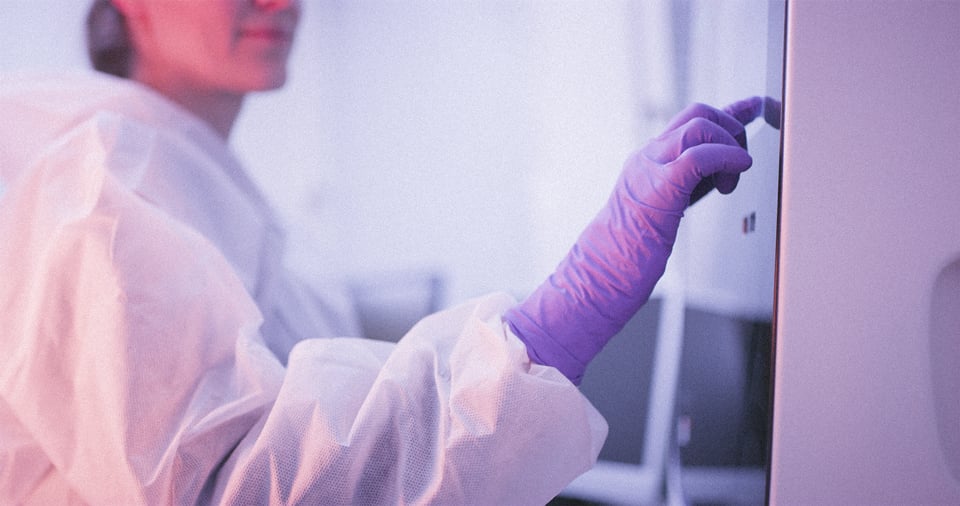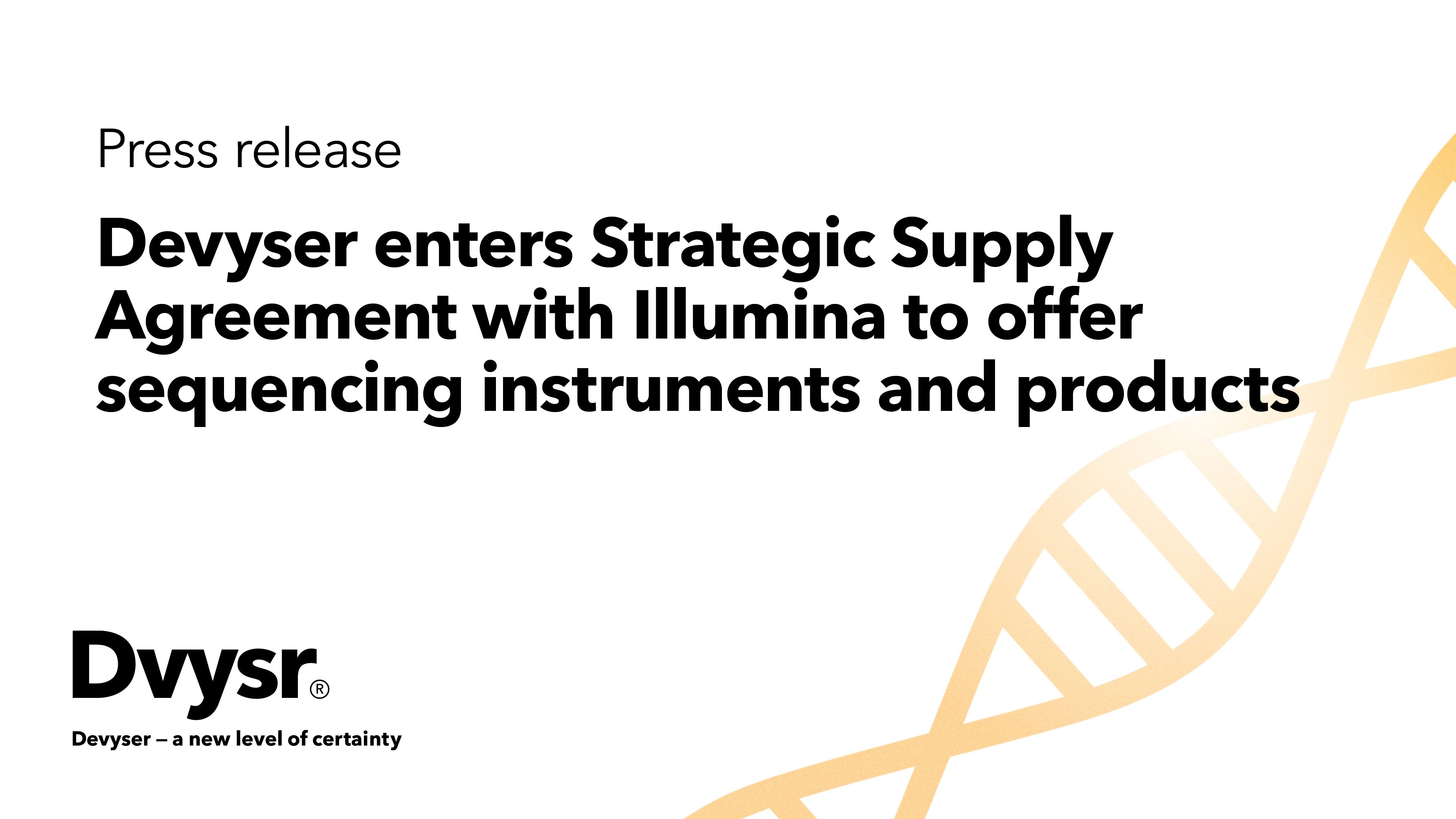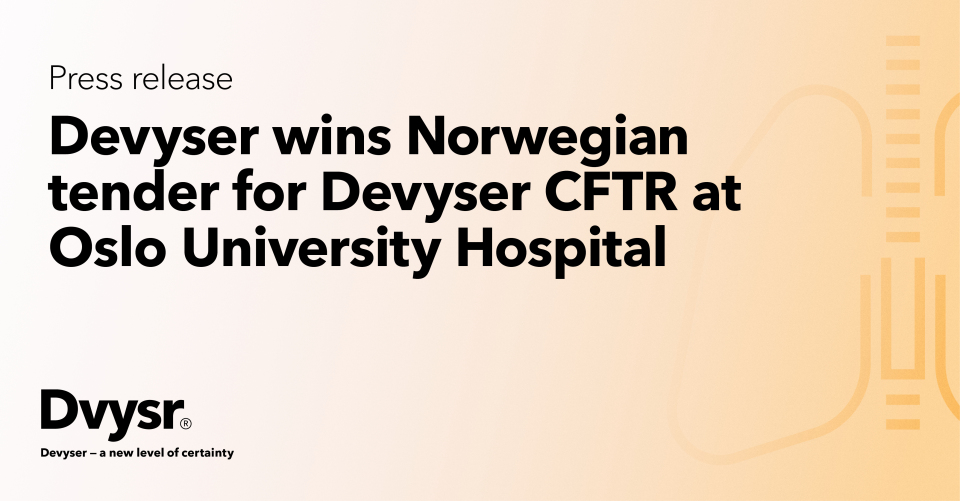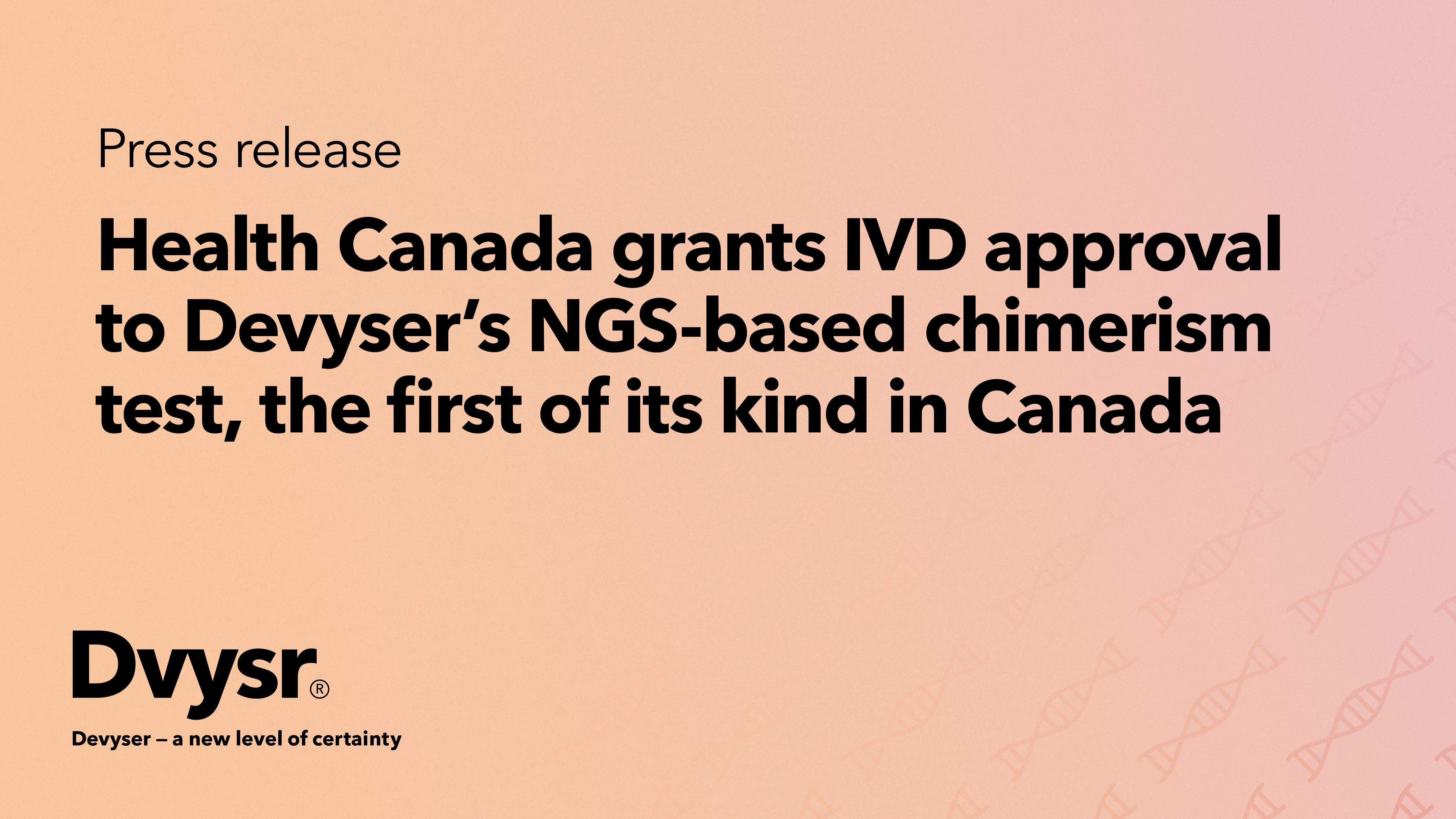Devyser enters Strategic Supply Agreement with Illumina to offer sequencing instruments and products
Devyser today announced that it entered a strategic agreement with Illumina, a global leader in DNA...
Fetal RHD screening NIPT

Fetal RHD screening NIPT | October 3, 2022
In RhD-negative mothers, anti-D prophylaxis can be withheld if the fetus is also RhD-negative. Fetal RHD status testing with NIPT is efficient and low risk. Single exon kits are a simple, accurate, and cost-effective RHD screening solution.
RhD incompatibility between mother and fetus is the most common and only preventable cause of fetal and neonatal hemolytic disease (HDFN). Since the introduction of anti-RhD prophylaxis in the 1960s, the prevalence has decreased significantly. In many countries treatment is given to all RhD-negative mothers to prevent alloimmunization. However, 40% of these women carry an RhD-negative fetus, making prophylaxis an overtreatment. Determination of fetal RHD status allows us to optimize anti-RhD administration without risking an increase in hemolytic disease.
Non-invasive prenatal testing (NIPT) uses cell-free fetal DNA from the maternal serum to determine fetal RHD status. It has been shown to be an accurate test to detect RhD-positive fetuses, with a very low rate of false-positive and false-negative results at 11 weeks of gestation. [1] The bottom line is clear: We can be confident that NIPT accurately identifies maternal-fetal RhD incompatibilities and informs withholding of prophylaxis. However, just because prenatal testing can work does not mean that it doesn’t present challenges. A large screening program needs a testing method that is:
• High-throughput, able to handle multiple samples every day
• Sensitive and accurate, as a false negative (and prophylaxis withholding) can have devastating consequences
• Simple as a process, to save time and costs
• Automated and straightforward to analyze, reducing human error
NIPT for fetal RHD status used to be done in research laboratories. Today, the test is being introduced into routine labs. Here is how the Devyser RHD assay can help your facility provide high-quality results and work as part of a nationwide screening program:
In humans, RhD expression is encoded by the RHD and RHCE homologous genes on chromosome 1. The RHD gene consists of ten exons, and it is notorious for the variety of polymorphisms. A single nucleotide change or RHD and RHCE recombination can lead to weak or partial RhD expression. The wealth of gene variants can complicate analysis – to optimize interpretation algorithms when looking for maternal-fetal incompatibilities, laboratories reduce the number of exons they study.
Currently, there are two main testing strategies:
• Combination of two exons, choosing between exons 4, 5, 7, or 10.
• Single exon testing using exon 4 or 10
Both approaches are accurate, with neither superior to the other. [2, 3]
Single exon design is just as trustworthy as the two-exon test. And it comes with additional advantages:
• Simplified laboratory work
• Faster workflow
• Cost-effective testing
• Better automation
• Easier analysis
Our exon 4 assay is a simpler process, which allowed us to standardize and streamline the workflow, reducing the risk of error. In fact, the method is already validated and certified according to EU CE-IVD regulations and guidelines meaning that if the test protocol is followed there is no further need for internal validation at the laboratory. Off label use, i.e any deviation from the validated test protocol such as different sample preparation or RT-PCR instrument, will require each laboratory to validate the safety and performance in accordance with the IVDD/IVDR by its own means. The latter is valid for any RHD test on the market, including home-made assays, which makes it important to always evaluate the scope and performance claims of any product carefully to avoid unintentional off-label use.
Though we are very proud of our product, the single exon strategy has already been used for almost a decade. In Sweden, first-trimester NIPT for RhD incompatibility has been routinely offered since 2012. From the get-go, they were using a quantitative PCR assay of exon 4, backed by the studies of Wikman & Tiblad [4, 5] . Subsequent meta-analysis has confirmed it – single exon analysis is feasible and trustworthy for routine screening.
Our numbers show it, too. The Devyser assay kit has 99.9% diagnostic sensitivity and 99.9% specificity.
In week 10 of gestation, we can already determine fetal RHD status with this level of accuracy. With early screening, a clinician is aware of HDFN risk prior to invasive testing like amniocentesis or pregnancy termination. Anti-D prophylaxis can be administered before any procedure that risks fetal-maternal hemorrhage – or confidently withheld based on fetal RHD.
The Devyser RHD is a single exon test kit for determining RhD incompatibilities as early as week 10 of gestation. The combination of high sensitivity and a simple response algorithm boosts throughput, saves time, and reduces costs. What is more, samples can be stored for up to six days under room temperature, making sample handling easier, even in remote areas.
We would also love to hear from you – contact us anytime and we will be happy to answer your questions and help you get started with the kit.
[1] Yang, H., Llewellyn, A., Walker, R. et al. High-throughput, non-invasive prenatal testing for fetal rhesus D status in RhD-negative women: a systematic review and meta-analysis. BMC Med 17, 37 (2019). https://doi.org/10.1186/s12916-019-1254-4
[2] Schoot CE, de Haas M, Clausen FB. Genotyping to prevent Rh disease: has the time come? Curr OpinHaematol 2017; 24: 544-550
[3] Clausen FB, Barrett AN, Krog GR, Finning K. Non invasive foetal RhD genotyping to guide anti-D prophylaxis:an external quality assurance workshop. Blood Transf 2018; 16: 359-62
[4] Taune Wikman A, Tiblad E, Karlsson A, Olsson ML, Westgren M. Non invasive single exon determination of fetal RHD in a routine screening programme in early pregnancy. Obstetr Gyneol 2012; 120:227-234
[5] Tiblad E, Taune Wikman A, Ajne G, Blanck A Targeted routine antenatal anti-D prophylaxis in the prevention of RhD immunization-outcome of a new antenatal screening and prevention program PloS One 2013, Aug 6
RhD incompatibility between mother and fetus is the most common and only preventable cause of fetal and neonatal hemolytic disease (HDFN). Since the introduction of anti-RhD prophylaxis in the 1960s, the prevalence has decreased significantly. In many countries treatment is given to all RhD-negative mothers to prevent alloimmunization. However, 40% of these women carry an RhD-negative fetus, making prophylaxis an overtreatment. Determination of fetal RHD status allows us to optimize anti-RhD administration without risking an increase in hemolytic disease.

Devyser today announced that it entered a strategic agreement with Illumina, a global leader in DNA...
Read More

Devyser is proud to announce that the company has been awarded a tender by Oslo University Hospital...
Read More

Devyser, a leading provider of advanced genetic testing solutions, has been awarded a new tender in...
Read More

Devyser is proud to announce that One Lambda Devyser Chimerism and Advyser Chimerism have been...
Read More